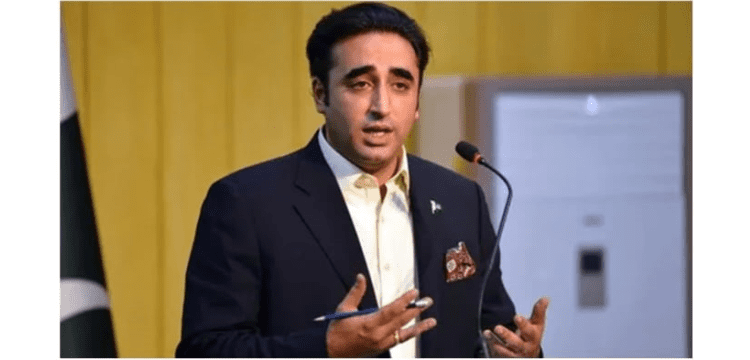[vc_row][vc_column][vc_column_text dp_text_size=”size-4″]At the conference, Bilawal and Khar will highlight the perspective of the developing world. Foreign Minister Bilawal Bhutto Zardari on Monday will represent Pakistan at the World Economic Forum’s (WEF) annual meeting in Davos, Switzerland.
He will be accompanied by Minister of State for Foreign Affairs Hina Rabbani Khar. Bilawal will share Pakistan’s perspective on the economic and social impact of the evolving geopolitical realities as well as challenges for the region’s security and stability.
The foreign minister is expected to highlight the developing world’s perspective on issues of climate change, food and energy security, social vulnerability in times of high inflation, and slowing economic activity. The foreign minister and the minister of state will also meet participating dignitaries including political leaders, corporate executives, heads of international organizations, and leading media and civil society personalities.
The 53rd annual meeting of the World Economic Forum (WEF), which runs from January 16 to 20, aims to emphasise the importance of discussion and public-private cooperation in navigating current problems as well as fostering long-term transformation.
The WEF claims that the meeting’s main goals will be to restore a feeling of collective agency and transform defensive measures into proactive, vision-driven policies and commercial strategies. The current energy and food problems, the “high inflation, low growth, high debt economy,” current industry challenges, societal vulnerabilities, and geopolitical concerns are thus the focus of the conference.
Important heads of state and government will speak at the gathering, and numerous geo-economic and geopolitical discussions will also take place. Business leaders, celebrities from around the world, including those from the G7 and G20 countries, and leaders of international organizations will attend.
In the WEF’s annual risks report from the previous year, respondents ranked climate change as the greatest threat. The severe rains that hit Pakistan later that year served as confirmation of this. According to the WEF study, extreme weather is seen as the world’s biggest danger in the short term and a failure of climate action in the medium and long term, or two to 10 years.
[/vc_column_text][/vc_column][/vc_row]











